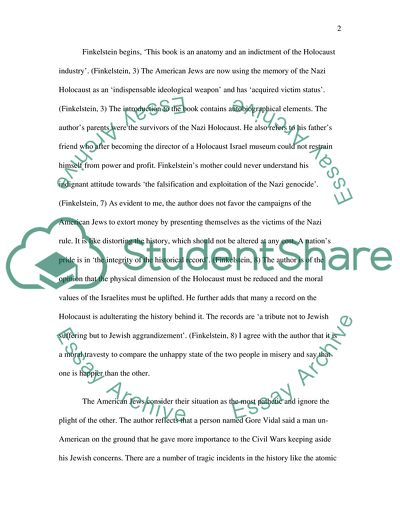Cite this document
(An Analysis of Norman Finkelsteins The Holocaust Industry: Reflection Term Paper, n.d.)
An Analysis of Norman Finkelsteins The Holocaust Industry: Reflection Term Paper. https://studentshare.org/social-science/1746278-the-holocaust-industry
An Analysis of Norman Finkelsteins The Holocaust Industry: Reflection Term Paper. https://studentshare.org/social-science/1746278-the-holocaust-industry
(An Analysis of Norman Finkelsteins The Holocaust Industry: Reflection Term Paper)
An Analysis of Norman Finkelsteins The Holocaust Industry: Reflection Term Paper. https://studentshare.org/social-science/1746278-the-holocaust-industry.
An Analysis of Norman Finkelsteins The Holocaust Industry: Reflection Term Paper. https://studentshare.org/social-science/1746278-the-holocaust-industry.
“An Analysis of Norman Finkelsteins The Holocaust Industry: Reflection Term Paper”. https://studentshare.org/social-science/1746278-the-holocaust-industry.


